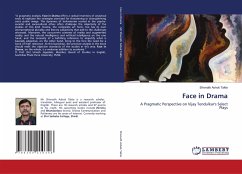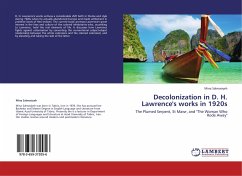
"Face of an Angel", by D. Chávez: a Chicana's autobiographical project
Versandkostenfrei!
Versandfertig in 6-10 Tagen
37,99 €
inkl. MwSt.

PAYBACK Punkte
19 °P sammeln!
Soveida Dosamantes, a young Chicana waitress, responding to her grandmother's request, decides to put down in words her family saga. So, by means of her first person narration, the reader has acess to Chicano society, a peculiar world which my research intends to investigate. Therefore, this paper aims at covering the historical process the panorama described in the book results from, passing by the iniquity between men's and women's roles and finally reaching the self-referential discourse with which the narrator-protagonist recreates the cultural environment she is inserted in. Thus, Soveida...
Soveida Dosamantes, a young Chicana waitress, responding to her grandmother's request, decides to put down in words her family saga. So, by means of her first person narration, the reader has acess to Chicano society, a peculiar world which my research intends to investigate. Therefore, this paper aims at covering the historical process the panorama described in the book results from, passing by the iniquity between men's and women's roles and finally reaching the self-referential discourse with which the narrator-protagonist recreates the cultural environment she is inserted in. Thus, Soveida Dosamantes makes use of her own domestic ambience and also the fictional town of Agua Oscura, her homeland, as a cutout of a major social framework. By endowing Soveida Dosamantes with autobiographical components of her own such as complicated family relations and native women characters working as gatekeepers of ancestral practices, Denise Chávez represents in "Face of an Angel" an ethnic group which has little by little been gaining terrain in the U.S social and political scenario.












